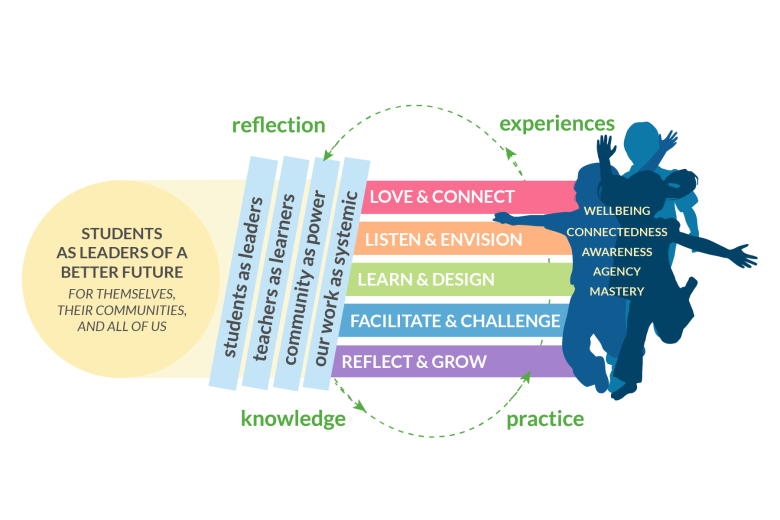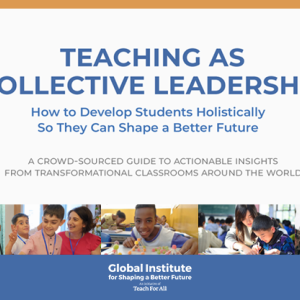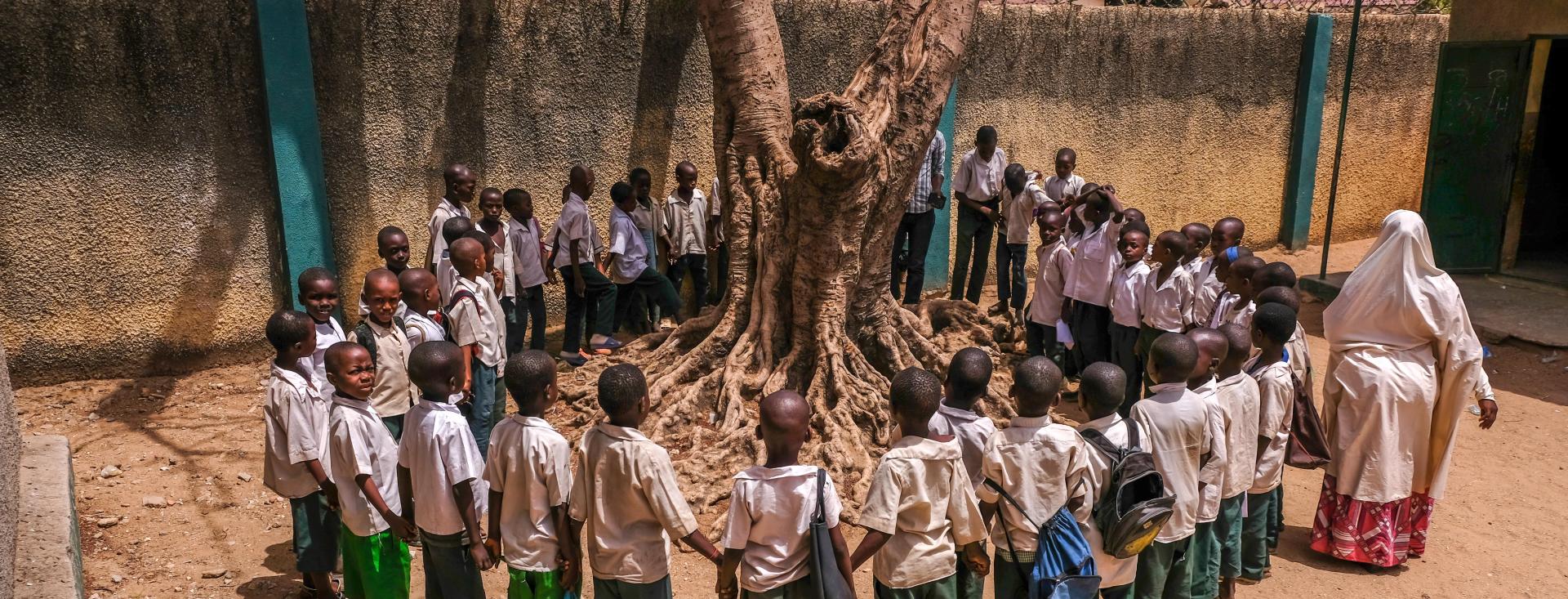Overview
We can only grow our students’, our teachers’, and our own wellbeing, connectedness, awareness, agency, and mastery if we are thoughtful and intentional about how humans best learn. Our studies of transformational classrooms reveal five “healthy tensions” in great learning experiences.

Discover
What learning principles is Teach For Nepal using in this 2015 video to help new teachers recognize the limitations of their perspective and learn from students and communities?
What learning conditions enabled Óliver Jabato Rodríguez to let go of his fear of failure, transforming how he saw his students and himself? Explore the question in this video from 2015.
Learn
- Shifting lenses often calls for disorienting experiences and reflection that drives “unlearning,” while developing skills often calls for watching, listening, and practicing.
- Shifting lenses and developing skills and actions can be part of a powerful cycle of unlearning and learning.
Five “healthy tensions” found in many transformational learning experiences
WELCOMING & DISORIENTING
COLLECTIVE & PERSONAL
DIRECTIVE & EXPLORATORY
STRUCTURED & RESPONSIVE
REFLECTIVE & ACTIVE
Five critical insights into how we learn (that we are conditioned to ignore)
We have to overcome systems that inhibit deep learning...
- As learners we actively construct knowledge, but we are conditioned to believe we are mostly passive recipients of knowledge.
- We are never not learning, but we are conditioned to believe learning only happens in formal settings like school.
- Our receptivity to different kinds of learning changes as we develop, but we are conditioned to believe we are all equally ready to learn in the same ways.
- “Unlearning” IS learning, but we are conditioned to assume that “learning” only means gaining new insight even though deconstructing old ideas often leads to the most important growth.
- Feeling safe, trusted, and free to be ourselves makes us most receptive to learning, but we are conditioned to believe pressure and intensity should drive learning.
Five healthy tensions found in many transformational learning experiences:
Welcoming & Disorienting
Collective & Personal
Directive & Exploratory
Structured & Responsive
Reflective & Active
Five critical insights into how we learn (that we are conditioned to ignore):
We have to overcome systems that inhibit deep learning...
- As learners we actively construct knowledge, but we are conditioned to believe we are mostly passive recipients of knowledge.
- We are never not learning, but we are conditioned to believe learning only happens in formal settings like school.
- Our receptivity to different kinds of learning changes as we develop, but we are conditioned to believe we are all equally ready to learn in the same ways.
- “Unlearning” IS learning, but we are conditioned to assume that “learning” only means gaining new insight even though deconstructing old ideas often leads to the most important growth.
- Feeling safe, trusted, and free to be ourselves makes us most receptive to learning, but we are conditioned to believe pressure and intensity should drive learning.
“If we want students to learn differently, then teachers must learn differently. If teachers are going to learn differently, they may have to unlearn some of what they think they know about learning.”
— Laurelin Whitfield, Leadership Coach and Facilitator, Teach For All

“If we want students to learn differently, then teachers must learn differently. If teachers are going to learn differently, they may have to unlearn some of what they think they know about learning.”
— Laurelin Whitfield, Leadership Coach and Facilitator, Teach For All

“If we want students to learn differently, then teachers must learn differently. If teachers are going to learn differently, they may have to unlearn some of what they think they know about learning.”
— Laurelin Whitfield, Leadership Coach and Facilitator, Teach For All

Do
Explore innovations across the Teach For All network and other recommended resources.

TACL
Teaching As Collective Leadership Guide (TACL) Guide
Over the past six years, more than 4,500 students, teachers, teacher coaches, community members, program designers, CEOs, researchers, and policymakers from across and beyond our network of 60+ partner organizations have contributed to these crowd-so...
TACL
Strength in Unity 2: Co-Constructing a Learning Community of Parent Advocates
In this video from 2015, watch how Teach For India fellow Pooja Chopra collaborated with her students' mothers to design a business and build their skillsets to be advocates for their daughters' learning and dreams.
TACL
Collective Leadership and Learning Practices - Hold Space: Taylor's Classroom
In this video from 2013, Teach For America alumnus Taylor Delhagen facilitates a debate to develop students’ critical thinking. Taylor provides concrete strategies for students to process information and develop their own viewpoints.
Pagination
Share
To share your insights, questions, resources, and challenges related to how we best learn, create a post on our Padlet using the "+" icon.
In this Padlet, the content is both user-generated and subject to moderation to ensure a safe and engaging experience.
Our Glossary
In our attempt to capture the real spirit of the classrooms we have studied, we have sometimes intentionally used words and phrases in a slightly unusual way.
We invite you to learn more about our language choices by exploring our Glossary.

